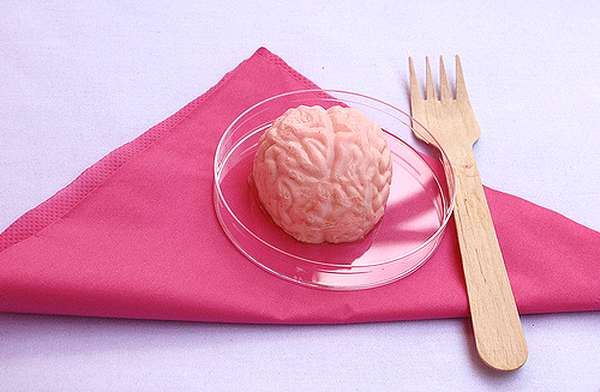Brain Bites are “now and then” updates regarding trends, statistics, and interesting info-bites in personal economics. These tasty tidbits help maintain your edge over an unpredictable future. Think of them as cerebral snacks for the hungry mind!
Not so much.
In 1995, over 40% of students reported that U.S. News rankings were either “very important” or “somewhat important” in deciding where to go to college. In 2015, the ranking was 20th of 27 potential factors in terms of importance. Today’s top four factors in students’ decision-making process are: majors, cost, safety, and employment.
Ref: Forbes.com
Siamese twins?
According to a 2015 study, average college tuitions rose by as much as 65 cents for a $1 increase in the subsidized-loan cap. For Pell grants, it translated into 55 cents on the dollar.
Ref: New York Federal Reserve
Dracula moonlights on Wall Street
Two-thirds of Americans don’t know that they pay fees on their 401(k) plans, which drains their retirement lifeblood. Lifetime fees for the average American household are greater than $150,000, eroding as much as a third of total savings.
Ref: Time Magazine
An ebbing tide
Withdrawals from 401(k) plans are now exceeding new contributions, a trend expected to accelerate in the future as more Baby Boomers retire. The number of Americans reaching retirement age in 2015 was approximately 3.5 million, up from 2.7 million in 2010.
Ref: Brightscope
Step aside Geezers
More than 1 in 3 American workers today are Millennials (young adults, ages 18-35), surpassing both Gen Xers and Baby Boomers to become the largest share of the American workforce.
Ref: Department of Labor
She came in through the bathroom window
Since 2005 there have been more than 5,000 known data breach incidents at U.S. organizations, involving an estimated 675 million individual records. A data breach is the loss of information from computers or storage media that could potentially lead to identity theft, including social security numbers, bank account details, driver’s license numbers, and medical information. Real figures may be far higher—many firms fail to report data thefts, since the consequences of disclosure can be severe.
Ref: Identity Theft Resource Center
The dog didn’t do it
95% of all data-security breaches involve human error. Education and training are foundational elements of an effective cyber self-defense, experts say.
Ref: IBM Security
Give us this day, our daily weed
Daily or near-daily marijuana use (defined as use on 20 or more occasions in the prior 30 days) was reported by 6% of college students in 2014. This was the highest rate since 1980, the first year that complete data was available.
Ref: University of Michigan
Perpetual motion machines
40% of all Americans who receive paid vacation benefits did not use all their allotted time off in 2014. 34% of Millennials said they worked every day of their vacation, experiencing a decrease in productivity when they got back from their time away.
Ref: Alamo Rent a Car
Don’t start without me
50% of Americans rated a co-worker’s tardiness as among the most annoying things in the workplace. In a follow-up study, 22% of Millennials admitted to being late at least once per month compared with 15% of those 55 and older.
Ref: YouGov
FB fanatics
Analysts estimate consumers spend between one-fifth and one-third of their time on mobile devices on Facebook-owned apps (more than 46 minutes daily).
Ref: Mark Zuckerberg, CEO
Behold world: ME!
The proportion of U.S. teenagers who believe they are “very important” jumped from 12% in 1950 to 80% in 2005. In a survey in 1976, people ranked being famous 15th out of 16 possible life goals. By 2007, 51% of young people said it was one of their ambitions.
Ref: David Brooks, in The Road to Character
Tuned out, turned off
In 2014, just 20% of 18- to 29-year old voters cast ballots in the fall elections, the lowest youth voter turnout on record.
Ref: Center for Information and Research on Civic Learning and Engagement
Young and eligible
Almost half of all Latinos eligible to vote this year will be Millennials. For comparison, just over a quarter of whites eligible to vote will be Millennials.
Ref: Pew Research
Can you hear me now?
Google’s “Project Loon” plans to gird the Earth with thousands of helium balloons for use as flying mobile-phone stations and Wi-Fi access points (bird rest stops?). The aim is to provide Internet connectivity most everywhere in the world. Today, 78% of individuals in Europe, 66% in the Americas, and 21% in Africa are using the Internet.
Ref: Commonwealth of Independent States
Burp!
The amount of full calorie soda consumed by the average American has dropped 25% since the late 1990s.
Ref: U.S. Center for Disease Control and Prevention
Take a bow, Bill
The winner of a global survey to identify the world’s most popular person for the past two years hasn’t been a celebrity or sports star. Not Barack Obama or the Pope. It’s been Bill Gates, the founder of Microsoft and a transformational philanthropist.
Ref: YouGov
The road to success is dotted with many tempting parking places.
~ Author unknown
The information in Brain Bites is sourced from a variety of usually reliable publications. Nevertheless, we cannot guarantee the accuracy or currency of this material and a degree of common sense should be applied before quoting it. If something appears to be too good to be true, it probably is.
Image credit: “Jelly Brain Dissection” by Guerilla Science (2010), licensed/modified (red ring removed) by permission of copyright holder.

